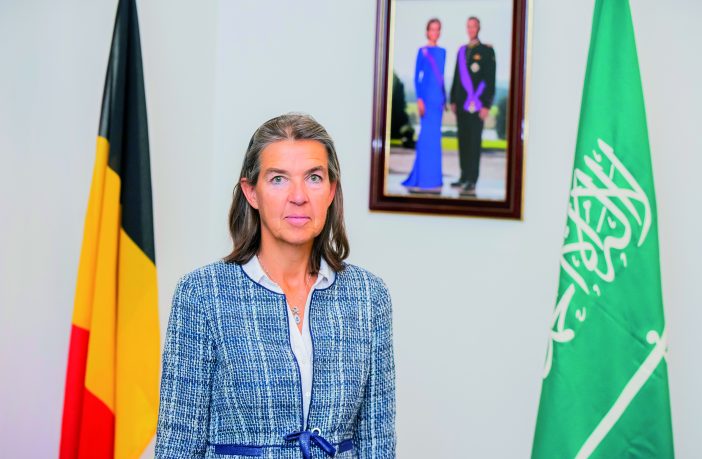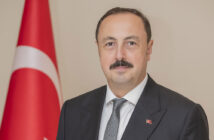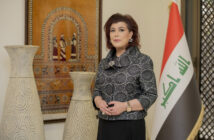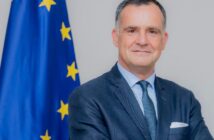Saudi-Belgium relations go back to 1919 when Prince Faisal passed by Belgium during a visit to the UK. How would you define the centennial bilateral ties of the two countries? What are the challenges and opportunities in the 21st century?
Young Saudi Prince Faisal’s brief visit to Belgium in 1919 was a very profound and touching gesture. On his way to the UK, the Prince decided to stop by the fateful Flanders Fields to witness the devastation caused by World War I first-hand and to pay tribute to the young lives lost during the warfare. This thoughtful gesture of goodwill remains a milestone of the relations between Saudi Arabia and Belgium. Later on, this simple expression of human compassion paved the way for a fruitful, diplomatic relationship, especially after Prince Faisal became the King of his nation and started cooperating with the Belgian King Baudouin. It is an incredible coincidence that you are asking this question on November 11th, the day commemorating World War I, when many young people died on Flanders’ fields, and which we continue to commemorate today. Many young soldiers from many nationalities paid with their lives for their nations.
In 2018, the two countries proudly celebrated the 100th anniversary of their bilateral relations. Hopefully, many more years and centuries worth of celebrations are yet to come in the future! As 2020 has proved, there will always be new challenges on the way. It is only by joining forces, collaborative efforts, and working together that perseverance will prevail.
Over the years, leaders of Al Saud and the Belgian royal families have fostered a robust and far-reaching bilateral collaboration through state visits. How do these visits contribute to mutual trust and people-to-people relations?
The bilateral visits between the two countries goes back to the 1950s when there were already early exploration missions and expeditions in the Arabian Peninsula. A Belgian legation was inaugurated in Jeddah in 1954, while the first Belgian Ambassador was appointed in 1963. There were three official royal visits in the 20th century, which spurred more personal cooperation between the two regions’ people.
The first visit took place in 1967 when King Faisal visited Brussels. The second visit was in 1975 by King Baudouin, and the third was by King Khaled in 1978. High-level economic missions are usually led by crown princes on the Belgian side, taking place almost precisely with a 10-year interval. In different years, these high-level economic missions were led by Crown Prince Albert, Philippe, the last one in 2014, led by HRH Princess Astrid (King Philippe’s sister).
This shows that the relations between the countries are not only royal-to-royal but also business-to-business, which is the best way to promote people-to-people collaboration and mutual interest.
The trade balance between the two countries in the first seven months of 2020 amounted to €169.1 million. Can you discuss the main directions of trading at the moment?
Using the year 2020 as an example would be statistically misleading, as there were many disruptive external factors, which skewed the figures unfavorably. For example, in 2019, the trade between the two countries reached about €5 billion, with a trade deficit of 1 billion for Belgium. The latter remained quite stable in the field of exports. The increase in imports was particularly noticeable for mineral products and plastics. Mineral products, chemicals, and plastics, followed by machinery and equipment, are the main trading sectors between Belgium and the Kingdom of Saudi Arabia.
It is also important to mention that Belgium is a world leader in biotechnology and has one of the best healthcare systems globally. Additionally, the Kingdom is also well-known for the quality of its entertainment sector. Some Belgian companies participated in the organization of the MDLBEAST concert during the Riyadh season. Despite already being a strong cooperation point, these are all fields, which pose a bigger opportunity for both countries in terms of investment.
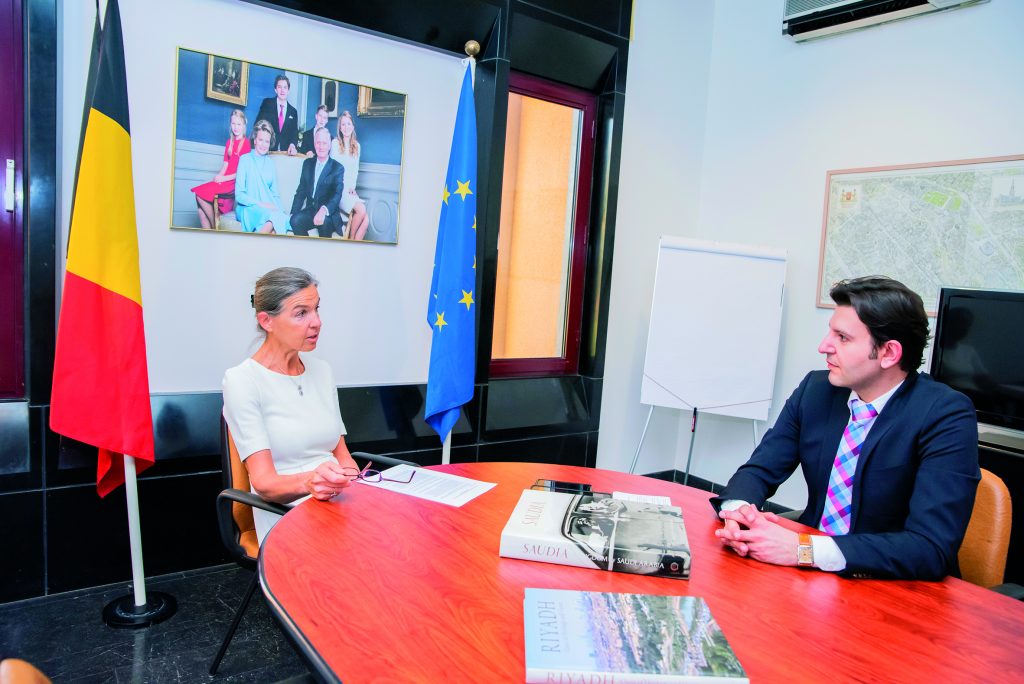
“First All-Female Basketball Final Against Team of Diplomats from Around the World.” Please, share the purpose of the initiative. How has this unique soft power initiative fostered public diplomacy and building bridges?
The idea came up in discussion with my friend Lina Almaeena when I visited her sport school providing football and basketball trainings for local boys and girls in Jeddah. We found that it would be a very active and exciting way to build ties between people. My friend built the network to bring together a group of Saudi basketball players who would play against a female diplomats’ group. It was a wonderful and fun event. When I saw what she was doing in Jeddah, I have to pay tribute to her in particular. We had a terrific time and we are all missing it now! The Saudi team was very strong; the diplomats should work on improving their skills for future rematches.
Despite being a small initiative, suchlike events bring much satisfaction to the people. Even though there was a winning side, everyone took away a piece of victory for coming together and participating in something so unifying. Though, I will not deny the need for future improvement, as well. Sports has always been one of the best ways to develop strong relations. It helps people to discover that at the end of the day, they all enjoy and appreciate similar things and that they have more in common than they could have imagined initially. This is the soft power that builds the strongest bridges!
As the first female resident Ambassador to the KSA, how did this assignment challenge you? What is the rewarding part?
Undoubtedly, it is an honor, and dare I say, a luxury to be the first female resident ambassador to the Kingdom. I have been accepted in Saudi Arabia with open arms and a homely warmness. The most rewarding part of this journey is the friendship that I gained from Saudi society at large. The relationships that bloomed with the Saudi people may be the most valuable takeaway from my stay in the Kingdom, which I will cherish forever.
As a witness of the development, which has been rapidly spreading in the country even well before my arrival, I can only testify to the ambition and the potential that the Kingdom and its people have. Now, Saudi Arabia has three women ambassadors, representing the Kingdom’s interest in the United States (Reema bint Bandar Al Saud), the United Nations Educational, Scientific and Cultural Organization (Princess Haifa Al Mogrin), and Norway (Amal Al Moallimi). This is just one example of growth; there are many more to come!
Similar to the location of most foreign embassies, the embassy of Belgium is located in the Diplomatic Quarter. How does this placement contribute to the multilateral projects of the international offices in the DQ?
The Diplomatic Quarter is certainly a vibrant place, which has seen a lot of development in the past few years. As a foreigner with a deep appreciation for the Saudi culture, observing both the diplomatic and casual lives in the region is very rewarding. Yet, as an ambassador, I must say that staying amidst the same network all the time creates the effect of a closed bubble. Diplomats such as myself need to see and get acquainted with the entire country, starting from big cities and ending with small villages and deserts. Saudi Arabia has a diverse cultural environment and very deep historical traditions. The best way to understand the country and its people is to speak to them and build a communication bridge through traveling and networking.
What is the daily routine of the Belgian Ambassador to the KSA in the DQ? Any favorite place you would recommend?
The delight of an ambassador’s job is that there is never a fixed routine. This profession is full with surprises and requires an intensely flexible and adaptive approach to work. Of course, meeting officials at the Ministries, talking about investment opportunities with business representatives, and organizing events with the team are all a part of an embassy’s traditional job. Yet, it is also important to stress that one of the key parts of being an ambassador is meeting the Saudi people and better understanding the local culture. I like to travel to the countryside because big cities are not representative of the country. Learning about the country, the people, the culture, the economy, the nature, the changes, and conveying these messages to the capital that an ambassador represents, is also a very important aspect of the job.
Embassy of Belgium Riyadh
P.O. Box 94396 Diplomatic Quarter
Riyadh 11693
Contact No: +966-11-11 488 2191
Website: https://saudiarabia.diplomatie.belgium.be
Twitter: @BelgiumKSA
Facebook: @BelgiumRiyadh
Instagram: @belgiuminksa

